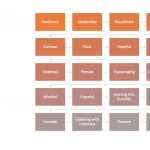Condolences to Community
The word “condolence” usually pluralized, comes from the Latin word, condolere, meaning “to suffer together”. Synonyms include commiseration, comfort, sympathy.
While the meaning of condolence suggests that there is a collective suffering together, grieving, like gratitude, is very personal. Individuals handle loss in different ways. Individuals show appreciation in different ways. When a community is mourning, the complexities are simultaneously individual and collective. We are not alone – and yet we are left to figure things out by ourselves.
Suffering at the communal level is part of my home town narrative, right now. People are suffering as individuals, at different stages of maturity and with various systems of support networks. In the summer of 2022, our lives have been rocked by loss of life of two individuals. Mandi Kujawa, a mother, a friend, a community storyteller, guitar teacher and creative educator died unexpectedly. On August 4, Ethan Enns-Goneau a kind-hearted 26-year-old who was born, raised, and worked in the community was murdered, in a horrific act of violence.
So, how do you write a note of condolences at such an impossibly sad moment in time for people who are trying to process the pain of loss piled on loss? How do you find words of comfort when there is no comfort to be found? I guess the honest answer is, we cannot. But as we continue to process our collective sadness in the summer of 2022, individuals are finding ways to come together, and gratitude is rising. There are two Go Fund Me campaigns underway – one in memory of Mandi, the other in memory of Ethan. Young people are holding candle vigils. There are communal hugs, meals and food is being shared, texts and phone calls are being sent. Collectively and individually, we are trying to make sense of the sadness. Gestures of kindness and genuine concern for others are on public display.
Grief and sudden loss hit our hearts with a force that is immeasurable. There is nothing to do and quite frankly, there is little to say when grief is fresh and everything is raw. Grief is process that involves many emotions. In early days, time stops, nothing is normal and the anguish being felt affects one’s ability to breathe, feel or think. Physically, people who are grieving may actually crumple. In times of deep sorrow, I look for comforting quotes – like Zelda Fitzgerald’s words: “Nobody has ever measured, not even poets, how much the heart can hold.”
Grief Counsellor and Author Francis Weller writes that grief is also a “Threshold emotion”. Over time and with effort, as people move further into grief, as people grapple with the questions and incomprehension, we gain a different understanding of life. Sadly, death and loss mean we all lose some innocence and we are forced to enter a new phase of maturity. Weller writes, “The work of the mature person is to hold grief in one hand and gratitude in the other and to be stretched large by them. How much sorrow can I hold? That is how much gratitude I can give. If I only carry grief, I will bend to cynicism and despair. If I only have gratitude, It will become saccharine and not develop compassion for other people’s suffering.”
Grief is also a profound expression of love – and at first, it has nowhere to go. The shock is significant and we are put off balance. Crossing the threshold of pain and anguish, grief, as an emotion, as a state of mind, as a life-altering phase of development, can shift. Over time, grief can transform into an upwelling of heartfelt tenderness, and gratitude. As the grieving process continues, individually and collectively, I am hopeful that our networks of support – friends, family, helping agencies, wise elders and kind strangers – will help people find the grace and the grit to process this summer of heavy weariness.
Grief. Gratitude. Grace. Grit. Condolences to all, as we suffer alone as individuals. Together as a community.





